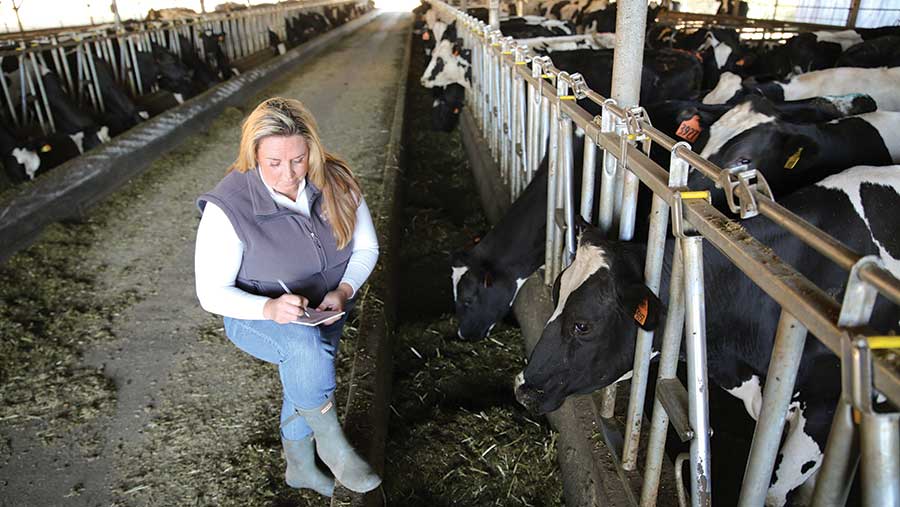Farmer Focus: Water quality project a priority
 ©Brianna Frey
©Brianna Frey With another year behind us I’m extremely thankful for what our industry has provided for our family in the last 12 months.
I hope that 2016 will continue to bring an increase in organic consumption.
This strong demand has seen our dairy and poultry operations grow over the past year, and strong prices have allowed us to add equipment and improve stock housing recently.
We have plans for continued improvements. First to tackle on my list is a water quality project already in progress.
See also: Dairy bull calves reach all-time high of £328 in US
Our dairy production area is near a winter stream. It requires a lot of work to keep it free of manure and it is a constant worry during the winter months.
We will be adding about 300ft of kerbing and cement to a corral outside a free stall barn. I have plans to work with a government agency, the Natural Resource Conservation Service (NRCS), to make this improvement.
NRCS is a branch of the USDA and its funds are specifically geared towards agriculture projects that can make land and animals habitat improvements. I am always trying to take full advantage of offered programmes.
For many years we have been in need of a barn large enough to house all our heifers for the winter.
Currently all yearling and bred heifers stay out. Because we are organic they are only allowed to be housed indoors during rainy months.
With current pasture demands it is a challenge to keep heifers out on the fields when the ground is soft and grass is in a growth mode.
I’m hopeful that we will be able to build a simple loose housing shed with a locking facility for breeding-age heifers.
Bird health is always on my mind, but it is a top priority on our farm during the wet and rainy months. This time of year the migrating fowl are more prevalent in our area, as are the chances of avian influenza. Staying on top of our biosecurity plan is a priority for the coming year.
For the coming months I predict good rainfall and continued demand for organic products and hope for bird health.
Jessica McIsaac milks 350 pedigree Holsteins in Petaluma, California, with her husband Neil. They sell organic milk and also have 6,000 laying hens
